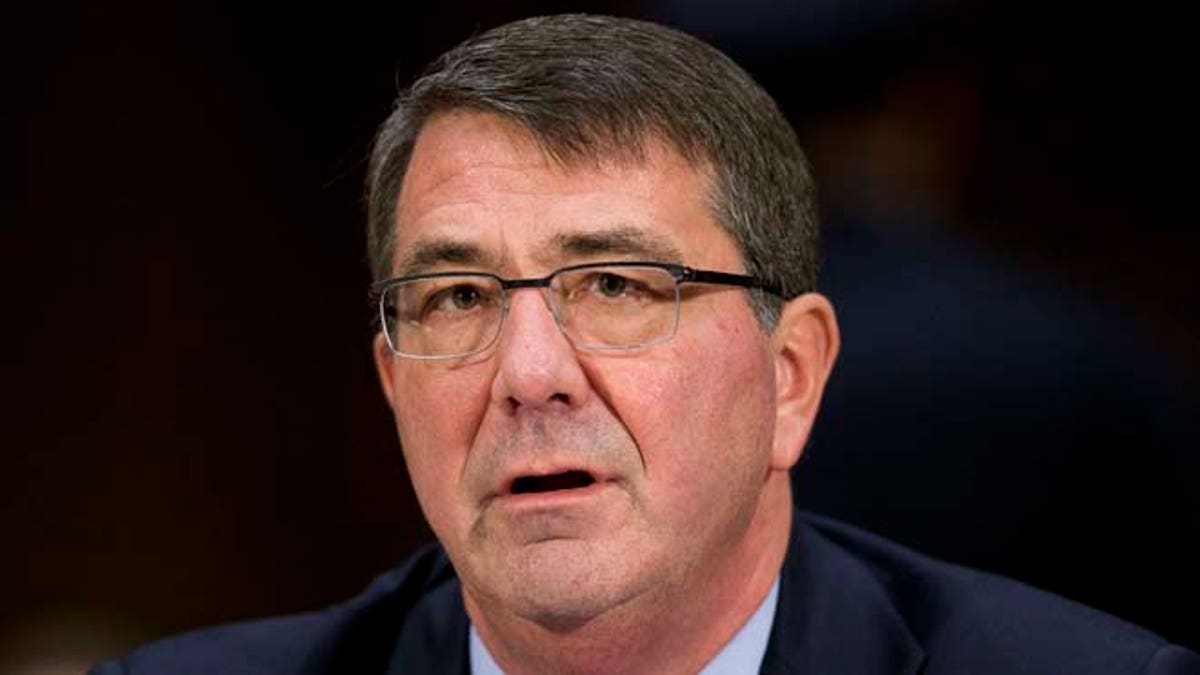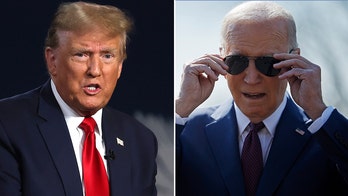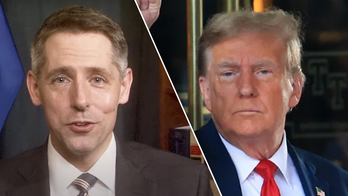
March 11, 2015: Defense Secretary Ash Carter testifies on Capitol Hill in Washington. (AP)
Defense Secretary Ash Carter on Wednesday endorsed the three-year expiration date in President Obama's request to Congress to authorize military force against the Islamic State -- backing off his position from just last week.
The newly sworn-in Pentagon chief testified before the Senate Foreign Relations Committee, in support of the president's new proposal for war powers to target ISIS militants.
He said it gives the military the necessary authority and flexibility to wage this campaign, and specifically addressed the three-year sunset.
"The president's proposed authorization affords the American people the chance to assess our progress in three years' time, and provides the next president and the next Congress the opportunity to reauthorize it, if they find it necessary," he testified. "To me, this is a sensible and principled provision."
But just last week at a similar House hearing, Carter said such a timeline would be "political."
He said the three-year sunset "is not something that I would have deduced from the Department of Defense's necessities, the campaign's necessities, or our obligation to the troops."
However, he said at the time that he understands why it was included. Carter said last week -- and reiterated on Wednesday -- that he still "cannot assure" that the fight against ISIS will be over in three years.
Congressional Republicans and other critics of the president's plan argue that an expiration date on such a military effort tells the enemy the U.S. military's plans. Republicans also have expressed unhappiness that Obama chose to exclude any long-term commitment of ground forces, while some Democrats voiced dismay that he had opened the door to any deployment whatsoever.
Carter and other top administration officials adamantly defended the terms of the request at Wednesday's hearing. Carter said the request does not include a long-term commitment of ground forces because "our strategy does not call for them."
He spoke alongside Secretary of State John Kerry and Gen. Martin Dempsey, chairman of the Joint Chiefs of Staff.
Committee Chairman Sen. Bob Corker, R-Tenn., said he hopes the hearing would help start a process where both parties can reach agreement on a new authorization to fight ISIS militants, who have seized territory across Iraq and Syria. Obama sent his draft to Capitol Hill last month.
"As we have received that authorization for the use of military force, what we have come to understand is that -- and this is not a pejorative statement, it's an observation -- we don't know of a single Democrat in Congress, in the United States Senate, anyway, that supports that authorization for the use of military force," Corker said.
Obama's proposal would allow the use of military force against ISIS for three years, unbounded by national borders. The fight could be extended to any "closely related successor entity" to ISIS, which has overrun parts of Iraq and Syria.
The 2002 congressional authorization that preceded the American-led invasion of Iraq would be repealed under the White House proposal, a step some Republicans were unhappy to see. But a separate authorization approved by Congress after the Sept. 11, 2001, terror attacks would remain in force, to the consternation of some Democrats.
The struggle to define any role for American ground forces is likely to determine the outcome of the administration's request for legislation. The White House has said that the proposal was intentionally ambiguous on that point to give the president flexibility, although the approach also was an attempt to bridge a deep divide in Congress.
The Associated Press contributed to this report.




